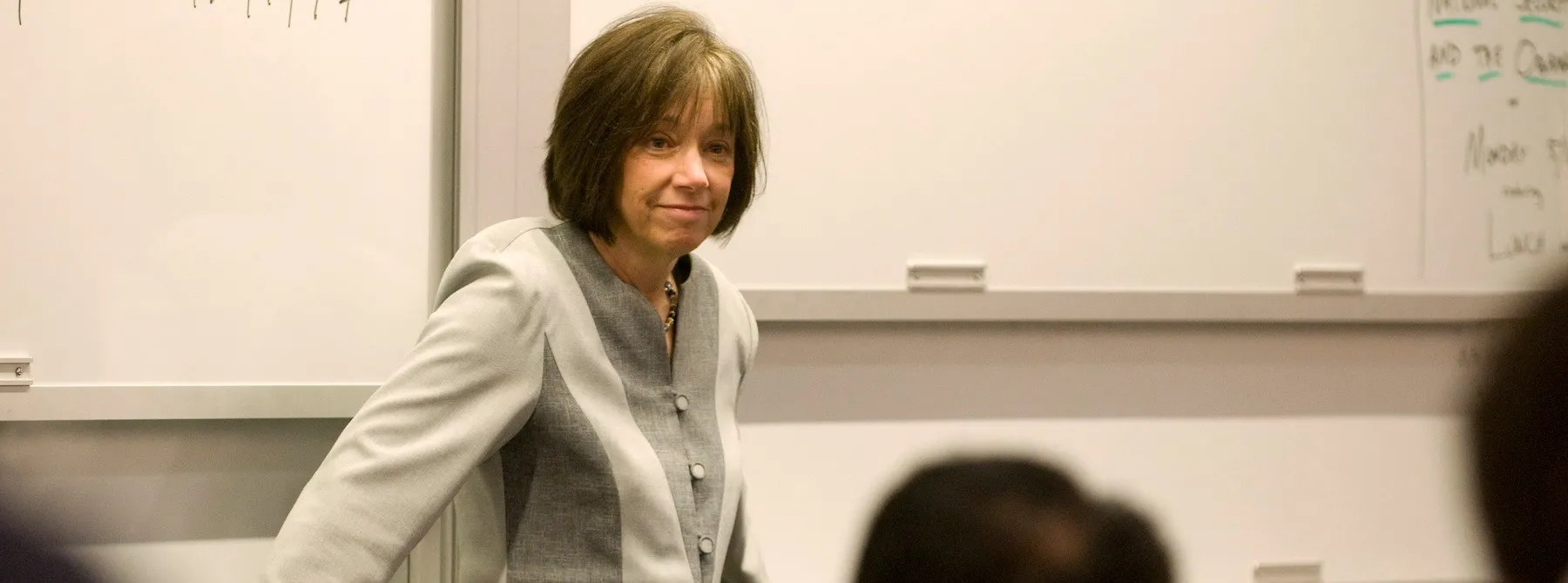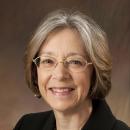Law School Honors Chief Judge Diane Wood

The University of Chicago Law School is honoring Senior Lecturer Diane P. Wood for her 25 of service on the US Court of Appeals for the Seventh Circuit with a special volume of the University of Chicago Law Review featuring 10 essays by Law School colleagues. The Law School also will host faculty, students, and alumni—as well as Wood and some of her former law clerks—at a virtual event on January 13 in which several of the Law Review contributors discuss Wood’s work and impact.
Wood, the court’s chief judge since 2013 and a member of the Law School faculty since 1981, has played a major role in shaping Seventh Circuit law. She is known by her colleagues as a jurist who is particularly adept at linking statutes to common law, seeing patterns amid chaos, and recognizing the role that human complexity might play within the more familiar formalism approach.
“Judge Wood is an extraordinary jurist as well as a phenomenal teacher, an influential scholar, and a devoted member of the Law School community,” said Dean Thomas J. Miles, the Clifton R. Musser Professor of Law and Economics. “She shares her time and intellect generously with our students, inside the classroom and out, such as when the editors of our three student-run law journals ask her to deliver a keynote address or write a piece of scholarship for a volume. We are deeply grateful for all she has contributed to the law and to our intellectual life at the Law School.”
The 10 essays describe Wood’s opinions in different areas of the law from international tax to data security to bankruptcy to environmental law.
In her essay, for instance, Martha C. Nussbaum, the Ernst Freund Distinguished Service Professor of Law and Ethics, wrote that one of Wood’s “great distinctions is her sound human understanding.” Nussbaum described how Wood’s judicial reasoning dovetails with the methodology of the Capabilities Approach Nussbaum pioneered. In his article, Douglas Baird, the Harry A. Bigelow Distinguished Service Professor of Law, discussed Wood’s opinion in a bankruptcy case and noted that a “clear grasp on how common law principles undergird federal statutes is one of many virtues on display in Judge Diane Wood’s many opinions from her first quarter century on the bench.”
The essays can be found in the special Law Review volume, as well as below:
Common Law Judging in an Age of Statutes -- Douglas G. Baird
Pattern Recognition in Tyus v Urban Search Management -- Lee Anne Fennell
Substitutes, Complements, and Irritants: Garza v Lappin and the Role of
International Law in US Courts -- Tom Ginsburg
Swanson v Citibank and the 1L Cano -- William H.J. Hubbard
The Double Movement of National Origin Discrimination -- Aziz Z. Huq
Death as Divorce for the Abandoned Spouse: Davis v Combes and the Cautious and Gender-Sensitive Judiciary -- Saul Levmore
Harassment and Capabilities: Discrimination and Liability in Wetzel v Glen St. Andrew Living Community, LLC -- Martha C. Nussbaum
Judge Wood Meets International Tax -- Julie Roin
Data Security’s Unjust Enrichment Theory -- Lior Jacob Strahilevitz
Migratory Birds and the Administrative State -- David A. Strauss
